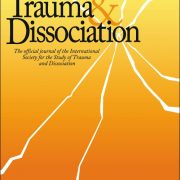Making Sense of Dissociation Raising Awareness & Promoting Healing
A rare opportunity to work with a trainer with both personal & professional experience, awareness and skills in understanding & working with dissociation.
Learning Outcomes:
• Greater awareness of the continuum of dissociative experiences.
• Enhanced confidence, responsiveness and awareness for supporting survivors of trauma, abuse and adversity.
• Awareness of effective short and long-term strategies for reducing distress and gaining control.
• Increased knowledge of working therapeutically with dissociative experiences and use of the DES-II.
• Greater understanding of the clinical relevance of dissociation.
• Acquired skills and knowledge to work collaboratively with survivors of trauma, adversity and abuse to help them reclaim ownership of their experiences and work towards recovery.
Suitable for anyone wishing to understand more about healing from trauma and working with dissociation, including mental health/social service professionals, psychotherapists and counsellors, voluntary sector workers, survivors and their friends, families and allies.
For further information and how to book a place, please visit:
https://www.eventbrite.co.uk/e/making-sense-of-dissociation-raising-awareness-promoting-healing-tickets-42463102282



 The Beck Road Alliance (BRA) exists to support survivors of organised childhood sexual abuse on Beck Road, Hackney, and ALL survivors EVERYWHERE, to share their testimonies of surviving childhood sexual abuse.
The Beck Road Alliance (BRA) exists to support survivors of organised childhood sexual abuse on Beck Road, Hackney, and ALL survivors EVERYWHERE, to share their testimonies of surviving childhood sexual abuse.



 For hundreds of years, psychiatry has treated voices and hallucinations as an enemy – regarding them as ‘insanity’ or ‘madness’ and seeing them as something to be quashed and even frightened of. But today, new
For hundreds of years, psychiatry has treated voices and hallucinations as an enemy – regarding them as ‘insanity’ or ‘madness’ and seeing them as something to be quashed and even frightened of. But today, new